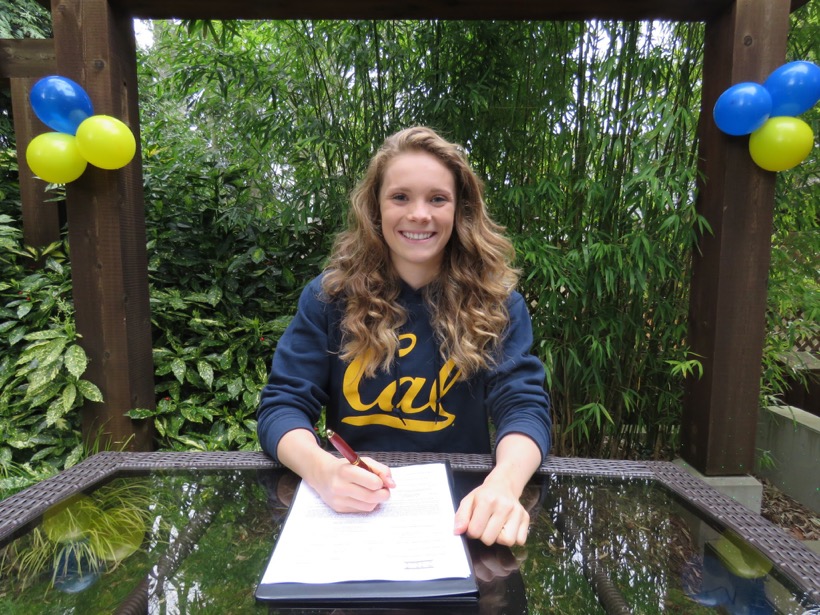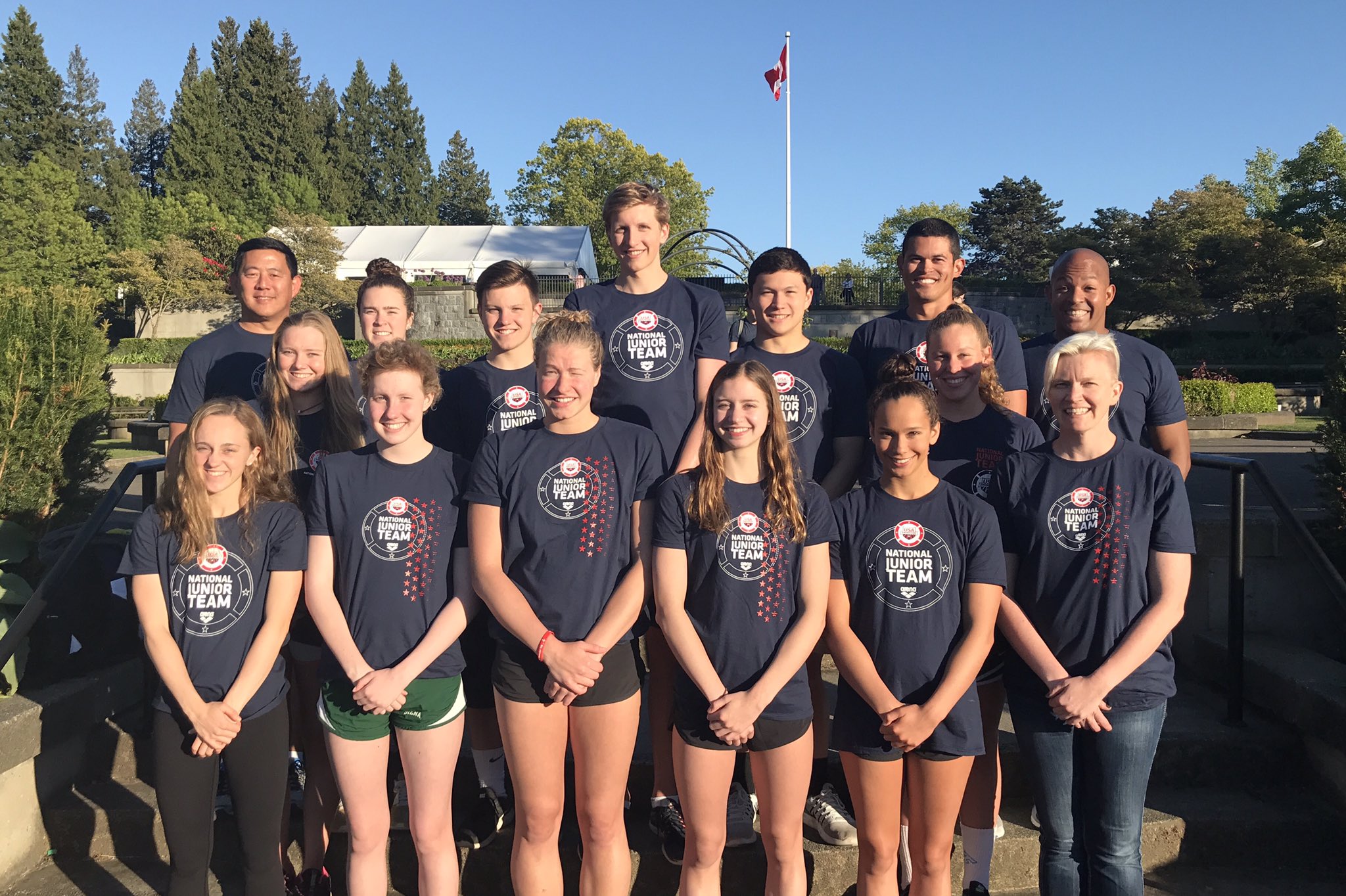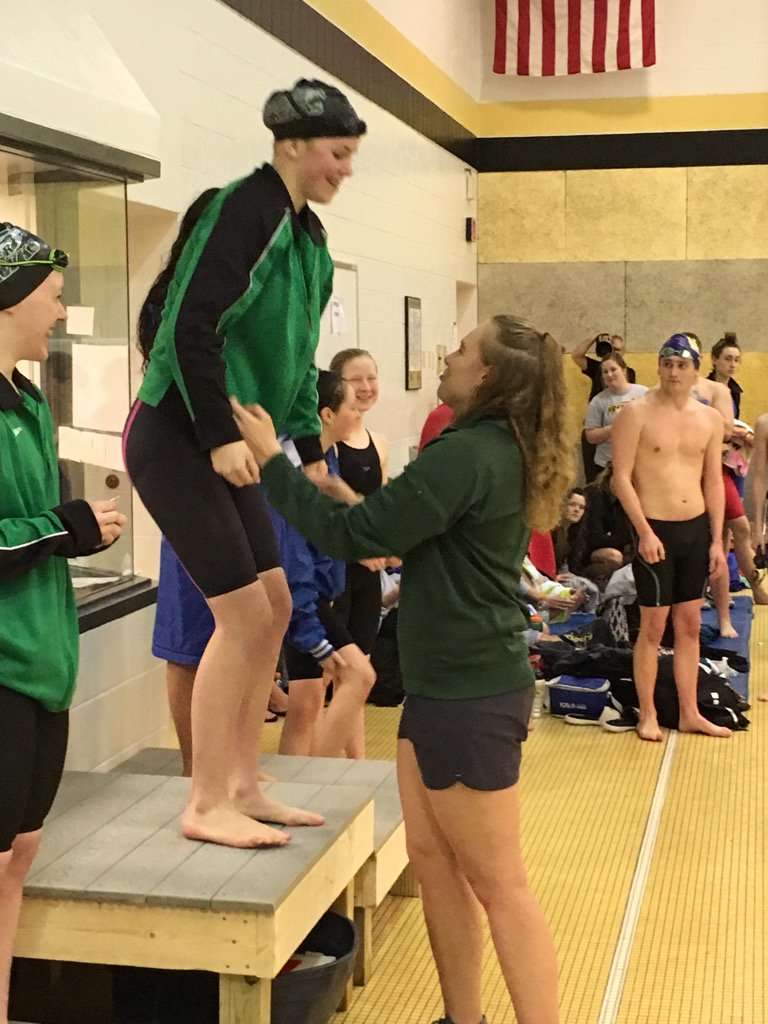UrsusArctosCalifornicus;842773809 said:
[COLOR="#006699"]Reading that article you had linked to did stir up some mixed feelings and even sadness at my end. But will wait to read [COLOR="#DAA520"]Missy[/COLOR]'s book for myself to see what she had actually written in it (and most importantly the surrounding context), before I'll feel qualified enough to comment further on this...
------
I finally had the chance to read Missy Franklin's autobiography, "Relentless Spirit". Previously, I highlighted the summary from the New York Daily News:
http://www.nydailynews.com/sports/missy-franklin-book-fills-gap-glory-failure-article-1.2897422
Overall, I think the book is a worthy read and gives a lot of insight into her family background and thought process. To put into perspective the Cal-related parts and the long(er)-term implications, I wanted to discuss with you some points:
- Teri McKeever and Kristen Cunnane created a warm and caring team atmosphere that kept everyone accountable along the way towards the goal of an NCAA team title.
- Franklin made the decision in January 2015 to move back to Colorado. McKeever was informed then (by unfortunate circumstances, in a phone call instead of a face-to-face meeting) but the team as a whole was not informed until after NCAAs.
- The "Decision" was based on the feeling that Franklin was not getting enough long-course, backstroke-specific, and altitude training necessary to have a similar Rio performance as London 2012. Although she had already been training at Cal for >1 year at that point, she viewed the looming Olympic year as a fork in the road between the unknown (Cal) and known (Colorado). She also wasn't thrilled about the post-grad team's plan to spend March 2016 in Tasmania training with Mitt Nelms, the stroke coach (she viewed it as yet another coaching change right before the Olympics). Finally, she, and her parents, disagreed with the training for the 500 free during her freshman year, saying that it took away from her main events and wasn't well suited to her muscle development.
We can look back in hindsight and see that possibly the worst-case scenario, from both Franklin's and McKeever's standpoints, happened in this Olympic year. Franklin had neither a great Trials nor Olympic games. McKeever and Cal endured a couple of non-#1 recruiting classes. Part of this was exasperated by McKeever probably overcompensating from the sting of Franklin's decision by making the mid-season meet being long course nationals in Fall 2015; this, when coupled with the difficult NCAA LCM->SCY time conversions, resulted in necessitating a peaking for Pac-12s, not NCs, in 2016. Much of this may have been mollified with more frequent and open communication, instead of bottling up thoughts and emotions.
I'll end by referencing Cal S&C coach Joel Smith's recent blog post on "Change Your Environment, Elevate Your Performance", and the influence of a swimmer's neurotransmitter dominance. Most of the swimmers at Cal are GABA dominant, which means "These athletes can sustain a similar workload for an extended period of time, and don't really do well with high intensity." They like consistency in their training environment. Some of the swimmers are dopamine dominant, which means "Highly charged athletes who handle intensity very well, yet need fairly frequent changes in exercise, as well as de-loads." They "require the highest level of excitement to really perform their best". However, I believe McKeever (and Smith, for that matter) may be acetylcholine dominant; these "tend to be pioneers in their sport, coming up with creative and extravagant plans and goals". So it's important for swimmers to recognize their personalities and training styles, and make sure their coaches are: 1. aware (speak up if you're unhappy with something!), and 2. adaptable (to their needs once these have been identified).
http://www.just-fly-sports.com/change-environment-elevate-performance/
http://www.theinertia.com/surf/the-five-elements-of-athlete-its-all-about-neurotransmitters/




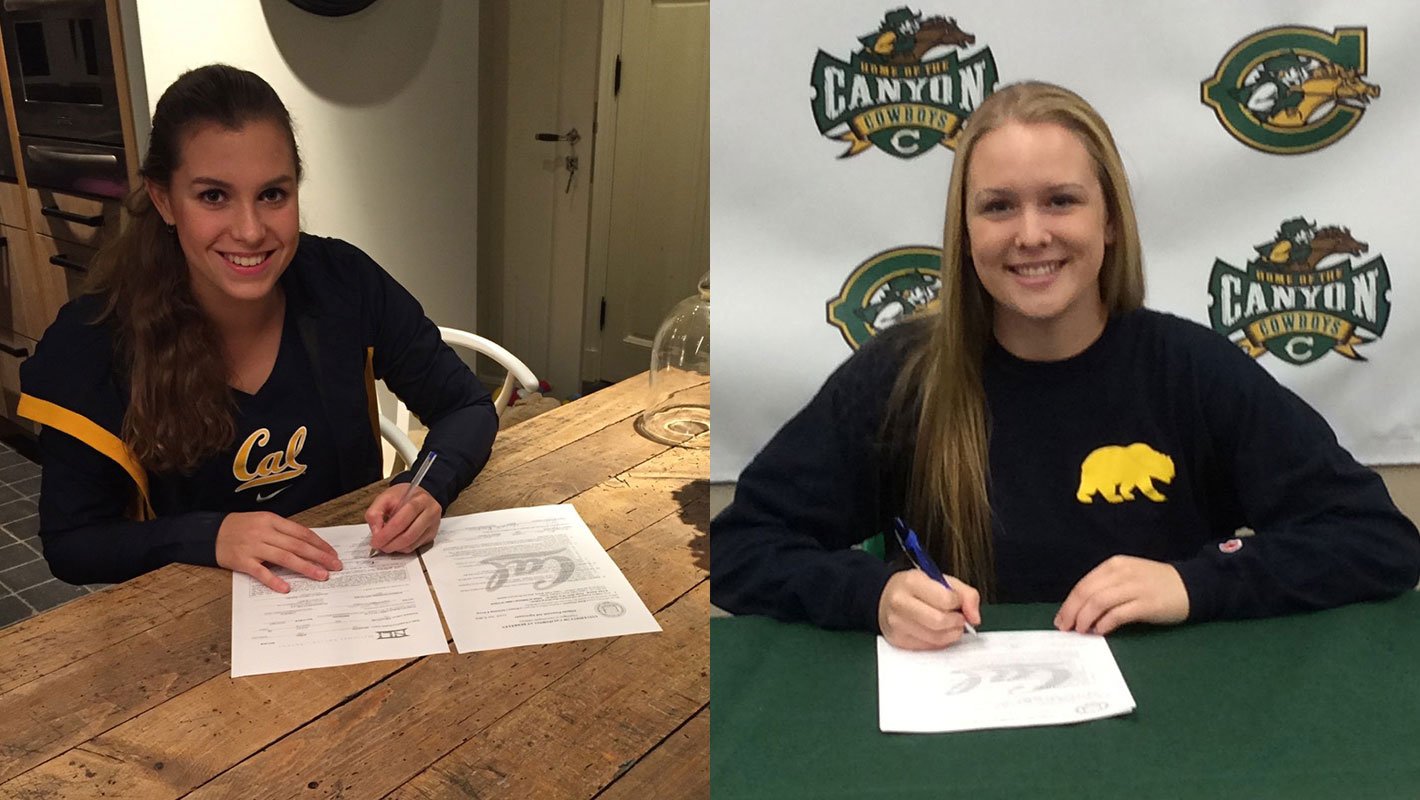








 , Caitlin ([U]200 IM[/U], Rio :cry
, Caitlin ([U]200 IM[/U], Rio :cry




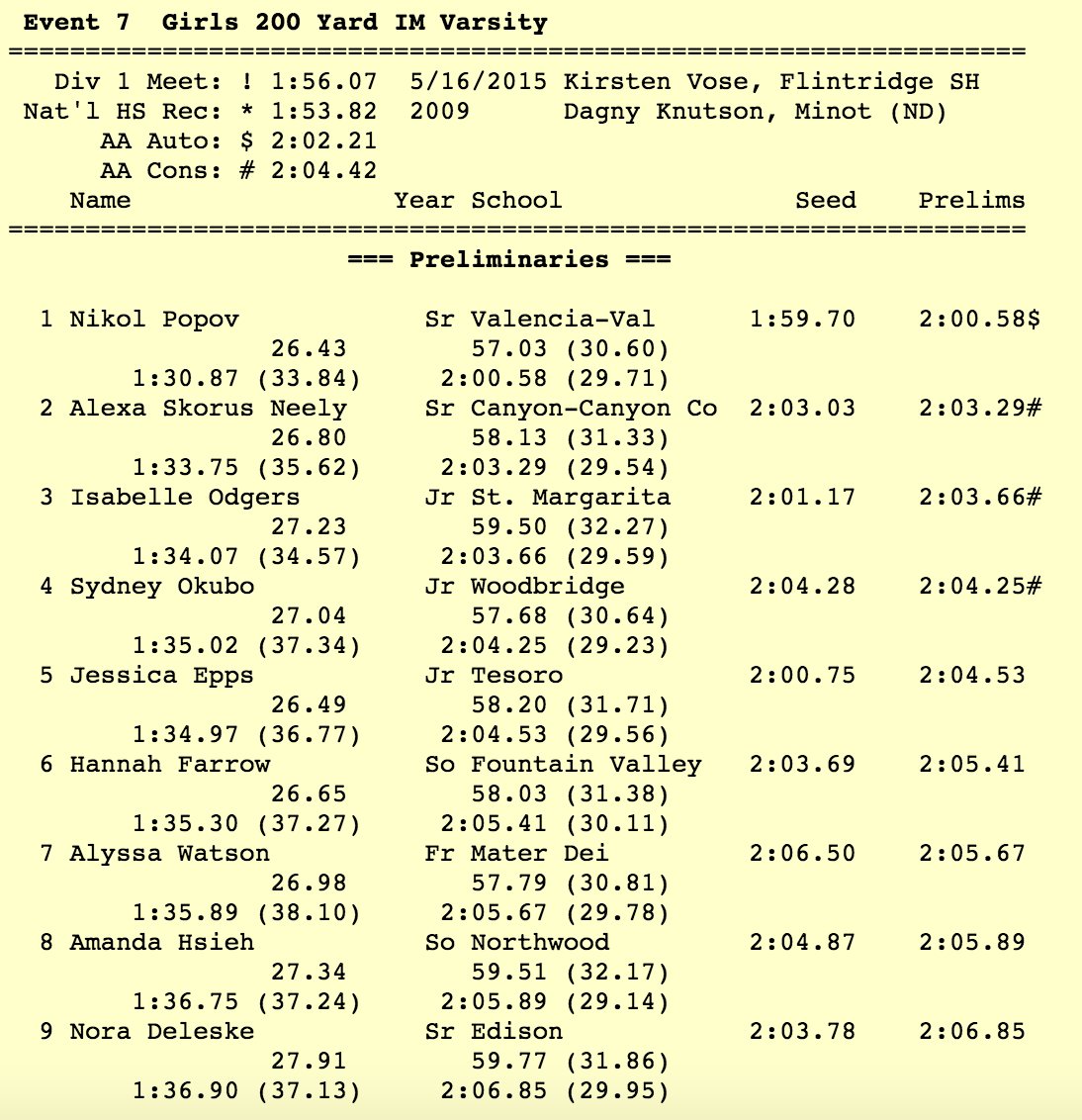
 ) had also qualified as the top seed in the B final of the [U]100 Breast[/U] with her 1:04.70
) had also qualified as the top seed in the B final of the [U]100 Breast[/U] with her 1:04.70
